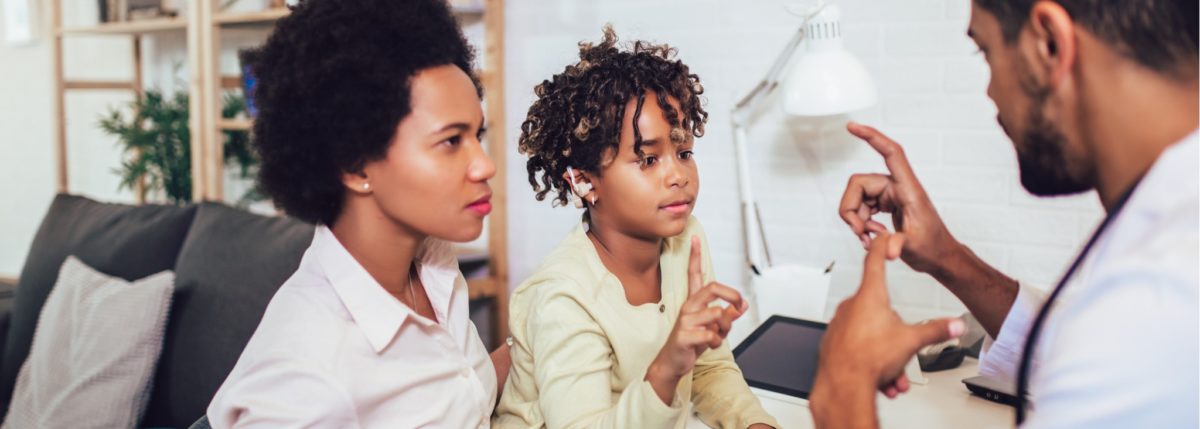Michelle L. Litchman Focuses On Diabetes Program Accessibility For People Who Are Deaf
Michelle L. Litchman, PhD, FNP-BC, FAANP, FADCES, assistant professor at the college of nursing at the University of Utah and medical director for Diabetes One-Day Education and Care Program at the Utah Diabetes of Endocrinology Center, was selected as a Betty Irene Moore Nurse Fellow. The fellowship is designed to develop nurse leaders and innovators who are making an impact in health care. Each fellow receives $450,000 over their fellowship tenure, including an extra $50,000 for their home institution. For Dr. Litchman, her project will focus on diabetes program accessibility for people who are deaf.
“This is really important to me because I have six family members who are deaf, including my mom. And so I’ve actually witnessed how some deaf people don’t receive the health care that they need,” Litchman tells Beyond Type 1.
Having type 2 diabetes is associated with a higher risk for hearing loss, according to a 2019 research study. For folks with pre-diabetes with blood glucose levels higher than normal, there was an associated 30 percent rate of hearing loss compared to individuals with normal blood sugar.
Barriers To Diabetes Program Accessibility
Litchman says that one of the challenges of current programs is that sign language interpreters are not always offered or available. She adds that when interpreters are available or offered, they are not always certified in communicating health information. “You need a medical interpreter, having someone that’s certified and also really knowledgeable about the medical terminology and space,” Litchman says.
Coupled with not having sign language interpreters available in the healthcare setting, Litchman stresses that health information is not always communicated in the language spoken by the patient who is deaf. “In a situation where there’s somebody who is deaf, you have to be providing that information directly to that person in their primary language,” Litchman explains. “There’s an assumption that people who are deaf also know English. For many, their primary language is actually sign language.”
Over the next three years, Litchman will design diabetes programs with language in mind and a focus on language deprivation–when children are not exposed to sufficient linguistic stimuli during the critical periods of language acquisition. According to Litchman, some parents do not teach their children sign language. “If they’re not taught sign language, they’re relying on reading lips. It actually deprives them of a lot of language, reading lips [has] only about 30 to 40 percent accuracy.”
Research shows that patients who are deaf or hard of hearing experienced poorer direct child-caregiver communication. Continuous exclusion from family communication was associated with a higher risk for chronic health outcomes.
“People may have home sign language, American sign language, reading lips, relying on captions,” Litchman says. Because the language used varies for each person, Litchman will leverage language deprivation research to inform her diabetes programming. “My work has some peer support threads. So I am hoping when we do these sessions, there’ll be group sessions where they can lean on one another for tips and tricks on how to make things work in their life,” Litchman explains. “I think a lot of us hope to improve outcomes related to diabetes, helping people feel like they can self manage, have the information, feel like they also have a group of people that they can lean on,” Litchman shares.





